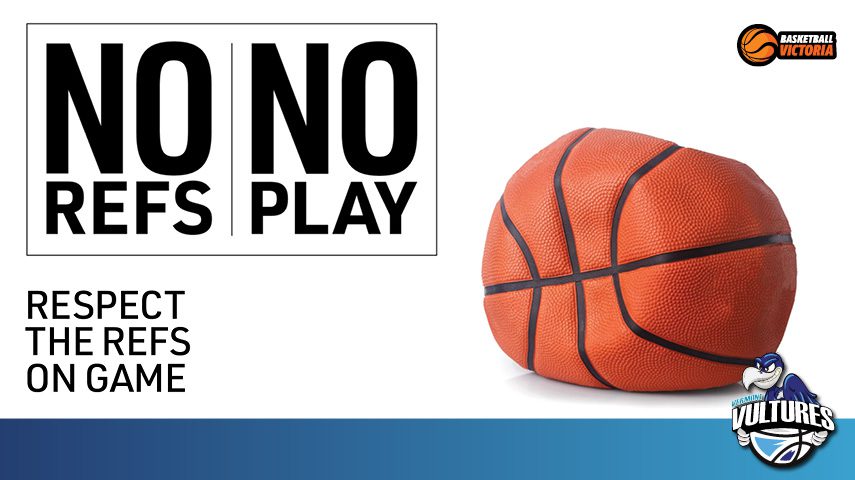Welcome to Summer 23/24 Season! I hope every participant in the club, every player, coach, team manager, and supporter has an enjoyable summer of basketball with Vultures.
Respect: a pillar of a successful club culture.
Vultures has a very long history of involvement in junior basketball. This season, we have more than 900 players participating in Vultures basketball – something of which we can all be proud! Each week, every player, coach and supporter has the opportunity to represent the club in a way that will set us apart as a club of excellence; and not necessarily by winning. We want families to choose Vultures as their club, and for each player, coach, manager, and supporter to choose to return week-after-week, season-after-season because of the culture of the club.
Unfortunately, in many places ‘excellence’ is only partially understood as winning championships and achieving personal accolades. Sadly, in those places, words and actions that demean, humiliate, are aggressive, or overly intense are often misunderstood (and accepted) as being ‘part of the game’. They don’t have to be.
We are a club where every participant can learn and improve.
We want a club where training and game days are a joy for everyone involved.
How do you build Vulture Culture?
- Set a standard of excellence for team expectations.
- Think about how we speak to and about players, coaches, and officials.
- The language we use matters:
- Don’t accept shouting ‘Airball!’ try ‘Get the next one!’
- Mistakes are natural don’t accept ‘No!’ (or worse!) say ‘Keep going!’
- The old saying ‘names will never hurt me’ is not true: name-calling is not on!
- Respect training times:
- Arrive on time and with the right gear.
- Players use the bathroom on the way into training, supervised by parents where necessary. This avoids disrupting the session and splitting the coach’s focus.
- Teammates keep their hands to themselves unless the coach’s drill calls for contact.
- Avoid crossing the lines:
- Respect the Refs:
- If you don’t have a whistle, you don’t have a say.
- Acting up at games won’t change the result, it will set a poor example.
- Players and supporters: coaches’ decisions are final.
- At a game, only a Coach and Team Managers can speak to Referees or Supervisors.
- Avoid Coach to Coach / Spectator to Spectator / Spectator to Opposition contact unless it is friendly, positive, and encouraging.
- If you have a concern about a game, ask your TM to approach the Referee
- Supervisor – this is the only approved course of action in-game.
- Respect the Refs:
- Respond to injuries and incidents:
- Check on injured participants, no matter what team they are from.
- Check your first aid resources are up to date.
- In an emergency, always seek appropriate assistance.
- When you lose, you learn:
- Great clubs know how to lose well.
- Be gracious; always congratulate your opposition, and thank the officials.
- It is never appropriate to cheer mistakes, misses, fouls or other incidents.
In an interview with Brene Brown, sports psychologist and culture coach Dr. Pippa Grange, talks about learning to win deep, not shallow. Dr Grange describes “winning shallow” as “winning to avoid not being good enough, winning to beat the opposition, winning to be seen as good enough… but not having that sense of [personal] fulfillment. Winning deep is where you are attached to the [the process] the joy and the struggle”.
Here’s hoping all 900+ players, their coaches, and supporters can look back on a season of progress when it is done. That will be a deep win for our club!









